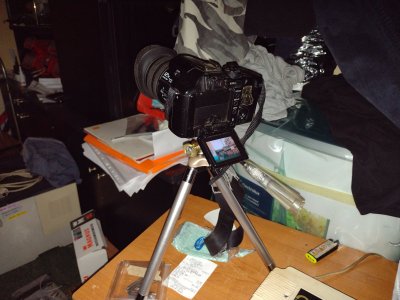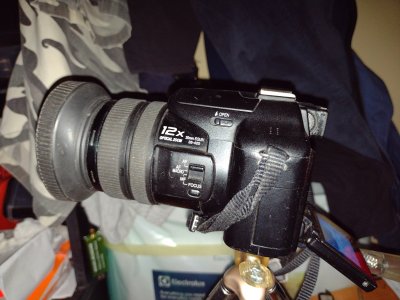BigJayDogg3
[H]ard|Gawd
- Joined
- Jul 21, 2009
- Messages
- 1,678
Howdy.
I'm looking around for a beginner-ish camera, preferably a used mirrorless, that I can use for stills. This is somewhat of a toe dip, so if I enjoy it/want to dive deeper into the hobby, I can pick up a better camera in time and use the same lenses, but I do want something that is going to be a step up from pulling out phones (iPhone XS soon to be 15 Pro Max for me, SGS 23U for my wife) every time we try to take pictures.
The idea is I spend <$400 to find out if its something I want to delve deeper into and add/replace this camera with a DSLR/nicer 4/3. If yes, I can sell for roughly what I bought it for, and if lugging around a separate camera isn't for me I can either keep it for special occasions, or again, sell it for what I have into it.
Probably 90/10 stills vs video. It may see some occasional video, but it isn't the primary concern. Age doesn't particularly scare me; I'd have no real issue with a 10 year old camera given I'd still be able to use modern cables (Mini/Micro USB) and storage (SD/MicroSD)
Any suggestions? Do I need to increase the budget? Should I only look at Nikon/Canon/Panasonic? Should I avoid anything over 5 years old? Should I just buy the cheapest thing on FB Marketplace with modern connectivity and decide where to go based upon that?
I'm looking around for a beginner-ish camera, preferably a used mirrorless, that I can use for stills. This is somewhat of a toe dip, so if I enjoy it/want to dive deeper into the hobby, I can pick up a better camera in time and use the same lenses, but I do want something that is going to be a step up from pulling out phones (iPhone XS soon to be 15 Pro Max for me, SGS 23U for my wife) every time we try to take pictures.
The idea is I spend <$400 to find out if its something I want to delve deeper into and add/replace this camera with a DSLR/nicer 4/3. If yes, I can sell for roughly what I bought it for, and if lugging around a separate camera isn't for me I can either keep it for special occasions, or again, sell it for what I have into it.
Probably 90/10 stills vs video. It may see some occasional video, but it isn't the primary concern. Age doesn't particularly scare me; I'd have no real issue with a 10 year old camera given I'd still be able to use modern cables (Mini/Micro USB) and storage (SD/MicroSD)
Any suggestions? Do I need to increase the budget? Should I only look at Nikon/Canon/Panasonic? Should I avoid anything over 5 years old? Should I just buy the cheapest thing on FB Marketplace with modern connectivity and decide where to go based upon that?
![[H]ard|Forum](/styles/hardforum/xenforo/logo_dark.png)

